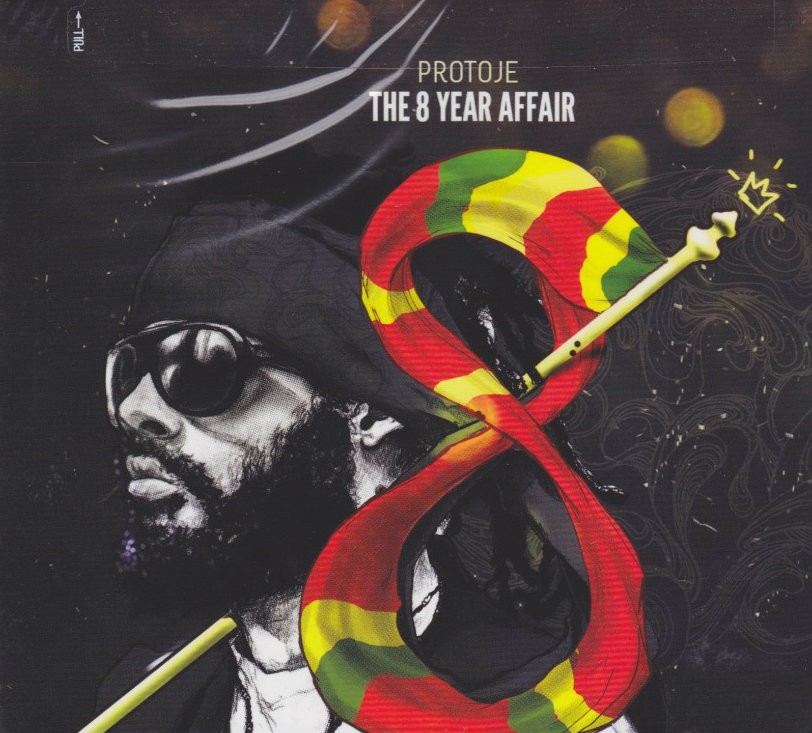The opening track off The 8 Year Affair is a moody, meandering nearly five-minute acoustic confessional, offering very little in the way of either reggae or dancehall. With its downstrokes and minimal production, it's a curious choice for an opening track on a reggae album. Yet the title track opener, coupled with Protoje's semi-candid lyrics, ends up setting the stage for a record that is firmly planted within a new sonic movement quickly becoming the style of the moment in Jamaica. Set off by a handful of young "conscious" artists, this new sound is both a return to Jamaica's past and a nod to modern dancehall. Heavy on positive spiritual themes with Rastafarian undercurrents, and backed by a live band, this reborn "roots" movement has begun to take hold of the island.
For the 31-year old Protoje, such a classic reggae sound is nothing new. His mother is Lorna Bennett, who was once a reggae singer herself, while his 2011 release The Seven-Year Itch featured a similar mix of live-band reggae and spiritually oriented dancehall. On his latest release, Protoje sticks to the script. The excellent "Kingston Be Wise" is a nod to the early digital dancehall with its programmed drums and Casio keys. Protoje vigorously toasts on social and political complexities that run through Jamaica's capital over the midtempo beat. The Romain Virgo-featured "Reggae Revival" offers up a similar sound, this time lightly coated in a dub style and a nod to legendary rhythm section Sly and Robbie. The album's lead single "This is NOT a Marijuana Song" is straight-ahead reggae rock, with reverb drenched horns and drums flowing next to a trio of female back-up singers as Protoje picks up the well-worn but still potent subject of ganja use and the laws in Jamaica that forbid it. Elsewhere Protoje offers up tales of love and heartbreak and lets his American r&b influences shine through. The saccharine "Somewhat Like You" is a smooth, reggae-tinged slow jam, while "Hold You Now," with its wah-wah guitar and hip-hop beat, seems constructed with crossover success in mind. Elsewhere "Come My Way" is an acoustic love song featuring Nyabinghi drumming and a peculiar violin. In these moments, Protoje seems to be attempting to push the boundaries of his sound, even at the expense of potentially losing dancehall fans or those who favor more bass-heavy, upbeat reggae offerings. Such tracks best showcase Protoje's versatility as an artist and his willingness to look beyond today's Jamaican radio hits for songwriting inspiration--a trait with deep roots in reggae's history. In a recent interview with LargeUp, Protoje cited Barrington Levy's work with "Junjo" Lawes as a big influence for The 8-Year Affair. While that connection can be heard, the album plays out more as an attempt to push modern reggae forward by incorporating various elements of other eras of Jamaican music along with styles from beyond Jamaica's shores. As a result, The 8-Year Affair, with its uplifting themes and vague spirituality, is a perfect example of the new "conscious" trend in Jamaican music. Much like his contemporaries, Protoje chooses to take a musical route that tackles the themes (and sound) that initially caused reggae's international popularity--love, unity, social justice, ganja--but with enough ambiguity to allows them to avoid challenging even the most sensitive listener.









